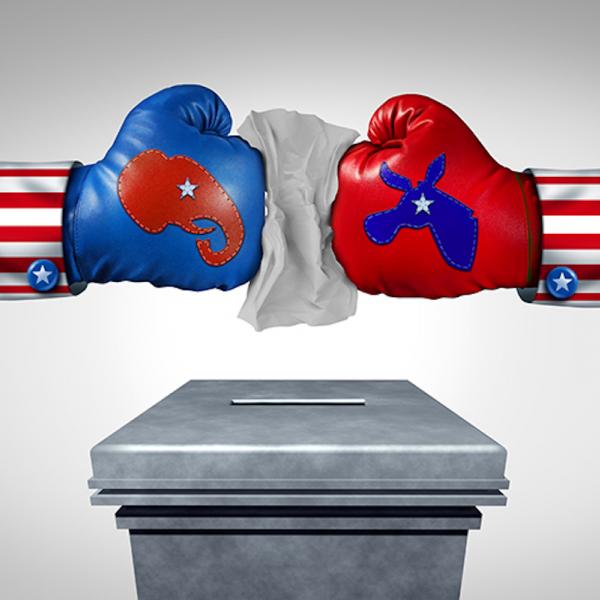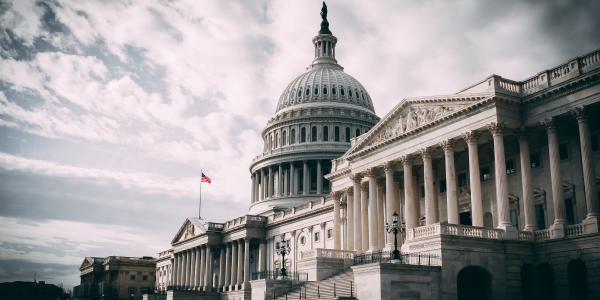
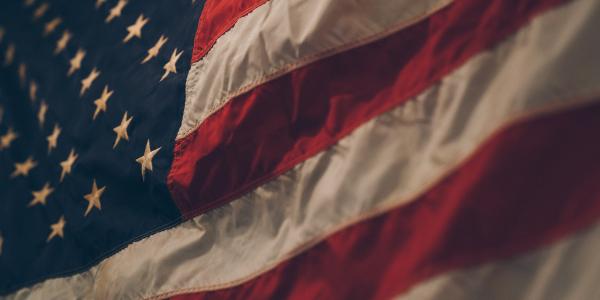
Arts & Sciences and the 2020 Election
Through voting, research, and advocacy, scholars and students in Arts & Sciences are making their mark this crucial election year. Learn about some of their efforts.
Research Snapshots
The misinformation next door
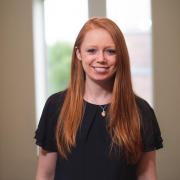
Where do most of us learn about politics? For the mast majority of Americans, the answer is from friends and family – and the information they provide is not always helpful or even true. Taylor Carlson, assistant professor of political science, was recently awarded a competitive grant by the Social Science Research Council to study how this phenomenon has played out on social media from 2016–20. In the project, Carlson will use natural language processing methods to examine the extent to which user-generated content on social media platforms distorts information reported by mainstream news outlets. "This project stands to change the way we think about misinformation on social media and point toward the need for a different toolkit for trying to combat the problem," Carlson said.
Religion and the 2020 election
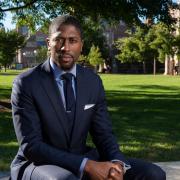
According to Lerone A. Martin, director of American Culture Studies and associate professor of religion and politics, modern evangelical voters have supported political candidates for myriad reasons, not all of which are in line with traditional Christian values. In a recent Q&A, Martin discussed the complex relationship between religion and politics in America and its role in the 2020 election. "Contrary to popular belief, white evangelical support for Trump is very much in line with the white evangelical tradition, not a departure from it," Martin said.
American skepticism and presidential power

The introduction to Andrew Reeves' forthcoming book No Blank Check: Why the Public Dislikes Presidential Power and What It Means for Governing opens with the December 18, 2019, announcement of President Donald Trump's impeachment. Reeves, an associate professor of political science, and his coauthor Jon C. Rogowski, of Harvard University, go on to trace the long history and current-day implications of Americans' skepticism of presidential power. Reeves and Rogowski assert that the distrust at the root of Trump's impeachment was "forged at the founding of the nation." In an array of survey data, they find that Americans continue to be skeptical of unilateral presidential power and punish the presidents who pursue it and the policies that are enacted by it. Reeves' previous book, The Particularistic President, examines why and how presidents prioritize the needs of certain constituents over others.
The American political pulse
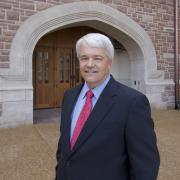
How have the opinions of voters shifted throughout the election cycle? Steven Smith, the Kate M. Gregg Distinguished Professor of Social Science, directs The American Social Survey (TASS), which is updated three times per year and includes questions on social sciences and political opinions. Using data from the survey, Smith and colleagues have gauged the American political pulse at key points in this election year. For example, Smith and Bill Lowry, professor of political science, examined voters' attitudes toward climate change: Is it real? How serious is it? Sharp partisan differences are a given, but Lowry and Smith's work looks at variations within each party’s electorate. Their data from August 2020 show that Trump supporters demonstrate a far greater diversity of views than do Biden supporters. Over 90 percent of Biden supporters rate climate change as a crisis or major problem, whereas a small majority of Trump supporters feel climate change is a minor problem or no problem at all.
Fostering "little ‘D’ democracy"
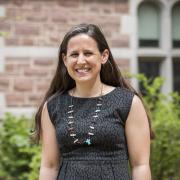
Thanks to political science professor Betsy Sinclair, staying civically engaged this election cycle and beyond can start with simply opening an app on your phone. In 2018, Sinclair launched Magnify Your Voice, a platform that brings people together at the local level to identify and solve problems in their communities, from road issues to voting needs. This year, the app has also allowed its 4,000+ users to stay connected and civically engaged despite physical isolation. “The coronavirus pandemic has been paired with a loneliness pandemic. Suddenly people weren’t able to be physically present to be part of the myriad of organizations that support their lives, and they were looking for other ways to be engaged,” Sinclair explained on St. Louis Public Radio.
Presidential transitions, new traditions
The public transfer of power from one president to the next has played a major role in reconciling political factions and creating solidarity among the populace at large after a contested presidential election. With the Election Day 2020 around the corner — and Inauguration Day a couple months after that — historian Peter Kastor and A&S grad Joey Vettiankal consider the historical precedents and wonder what will come next.
Read the Essay
Experts in the News
Amid historic race, voters of color wrestle with Harris’ personal and political identities
Shanti Parikh, Anthropology | PBS NewsHourPresidential illness, past and present — and the downplaying of it
Peter Kastor, History | St. Louis on the AirSt. Louis reacts to chaotic debate, Trump’s statements on white supremacists
Peter Kastor, History | KMOV-TVTrump’s targeted moves seek to shore up support for GOP Senators
Andrew Reeves, Political Science | The Wall Street JournalHow Mitch McConnell is changing the Democratic Party
Steven S. Smith, Political Science | VoxJoe Biden jobs ad uses pandemic to tar Donald Trump
Steve Fazzari, Economics | PolitiFactMitch McConnell flip-flops on considering Supreme Court justices in a presidential election year
Steven S. Smith, Political Science | PolitiFactVoting alone
Betsy Sinclair, Political Science | The New York TimesThe party of God: Republican or Democrat?
Marie Griffith, Religion and Politics | The ForwardTrump warnings on lawlessness divide GOP candidates
Steven Smith, Political Science | The HillPresident Donald Trump is set to visit Prescott, Tucson. Here’s why.
Andrew Reeves, Political Science | AZ Central/Arizona RepublicThis St. Louis-born app can help fix your neighborhood
Betsy Sinclair, Political Science | St. Louis Public RadioConservative PAC draws charges of racism in Missouri
Clarissa Rile Hayward, Political Science | The Associated Press

